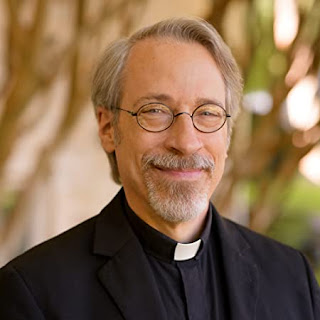Remarks on Bertrand Russell's Theory of Knowledge
By Albert Einstein
When the editor asked me to write something about Bertrand Russell, my admiration and respect for that author at once induced me to say yes. I owe innumerable happy hours to the reading of Russell's works, something which I cannot say of any other contemporary scientific writer, with the exception of Thorstein Veblen. Soon, however, I discovered that it is easier to give such a promise than to fulfill it. I had promised to say something about Russell as philosopher and epistemologist. After having in full confidence begun with it, I quickly recognized what a slippery field I had ventured upon, having, due to lack of experience, until now cautiously limited myself to the field of physics. The present difficulties of his science force the physicist to come to grips with philosophical problems to a greater degree than was the case with earlier generations. Although I shall not speak here of those difficulties, it was my concern with them, more than anything else, which led me to the position outlined in this essay.
We all start from "naive realism," i.e., the doctrine that things are what they seem. We think that grass is green, that stones are hard, and that snow is cold. But physics assures us that the greenness of grass, the hardness of stones, and the coldness of snow, are not the greenness, hardness, and coldness that we know in our own experience, but something very different. The observer, when he seems to himself to be observing a stone, is really, if physics is to be believed, observing the effects of the stone upon himself. Thus science seems to be at war with itself: when it most means to be objective, it finds itself plunged into subjectivity against its will. Naive realism leads to physics, and physics, if true, shows that naive realism is false. Therefore naive realism, if true, is false; therefore it is false.
It was, however, the very same physical mode of thought and its practical successes which have shaken the confidence in the possibility of understanding things and their relations by means of purely speculative thought. Gradually the conviction gained recognition that all knowledge about things is exclusively a working-over of the raw-material furnished by the senses. In this general (and intentionally somewhat vaguely stated) form this sentence is probably today commonly accepted. But this conviction does not rest on the supposition that anyone haactually proved the impossibility of gaining knowledge of reality by means of pure speculation, but rather upon the fact that the empirical (in the above mentioned sense) procedure alone has shown its capacity to be the source of knowledge. Galileo and Hume first upheld this principle with full clarity and decisiveness.
Man has an intense desire for assured knowledge. That is why Hume's clear message seemed crushing: The sensory raw material, the only source of our knowledge, through habit may lead us to belief and expectation but not to the knowledge and still less to the understanding of law-abiding relations. Then Kant took the stage with an idea which, though certainly untenable in the form in which he put it, signified a step towards the solution of Hume's dilemma: Whatever in knowledge is of empirical origin is never certain (Hume). If, therefore, we have definitely assured knowledge, it must be grounded in reason itself. This is held to be the case, for example, in the propositions of geometry and in the principle of causality. These and certain other types of knowledge are, so to speak, a part of the. instrumentality of thinking and therefore do not previously have to be gained from sense data (i.e., they are a priori knowledge). Today everyone knows of course that the mentioned concepts contain nothing of the certainty, of the inherent necessity, which Kant had attributed to them. The following, however, appears to me to be correct in Kant's statement of the problem: in thinking we use, with a certain "right," concepts to which there is no access from the materials of sensory experience, if the situation is viewed from the logical point of view.
Thus, for example, the series of integers is obviously an invention of the human mind, a self-created tool which simplifies the ordering of certain sensory experiences. But there is no way in which this concept could be made to grow, as it were, directly out of sense experiences. It is deliberately that I choose here the concept of number, because it belongs to pre-scientific thinking and because, in spite of that fact, its constructive character is still easily recognizable. The more, however, we turn to the most primitive concepts of everyday life, the more difficult it becomes amidst the mass of inveterate habits to recognize the concept as an independent creation of thinking. It was thus that the fateful conception-fateful, that is to say, for an. understanding of the here existing conditions-could arise, according to which the concepts originate from experience by way of "abstraction," i.e., through omission of a part of its content. I want to indicate now why this conception appears to me to be so fateful. As soon as one is at home in Hume's critique one is easily led to believe that all those concepts and propositions which cannot be deduced from the sensory raw-material are, on account of their "metaphysical" character, to be removed from thinking. For all thought acquires material content only through its relationship with that sensory material. This latter proposition I take to be entirely true; but I hold the prescription for thinking which is grounded on this proposition to be false. For this claim-if only carried through consistently absolutely excludes thinking of any kind as "metaphysical."
No matter how much one may admire the acute analysis which Russell has given us in his latest book on Meaning and Truth, it still seems to me that even there the spectre of the metaphysical fear has caused some damage. For this fear seems to me, for example, to be the cause for conceiving of the "thing" as a "bundle of qualities," such that the "qualities" are to be taken from the sensory raw-material. Now the fact that two things are said to be one and the same thing, if they coincide in all qualities, forces one to consider the geometrical relations between things as belonging to their qualities. (Otherwise one is forced to look upon the Eiffel Tower in Paris and that in New York as "the same thing.") 1 Over against that I see no "metaphysical' danger in taking the thing (the object in the sense of physics) as an independent concept into the system together with the proper spatio-temporal structure.
From The Philosophy of Bertrand Russell, Vol. V of "The Library of Living Philosophers," edited by Paul Arthur Schilpp, 1944. Translated from the original German by Paul Arthur Schilpp. Tudor Publishers.
Related reading: What Albert Einstein Thought of Christianity; Einstein Was Right About Education










